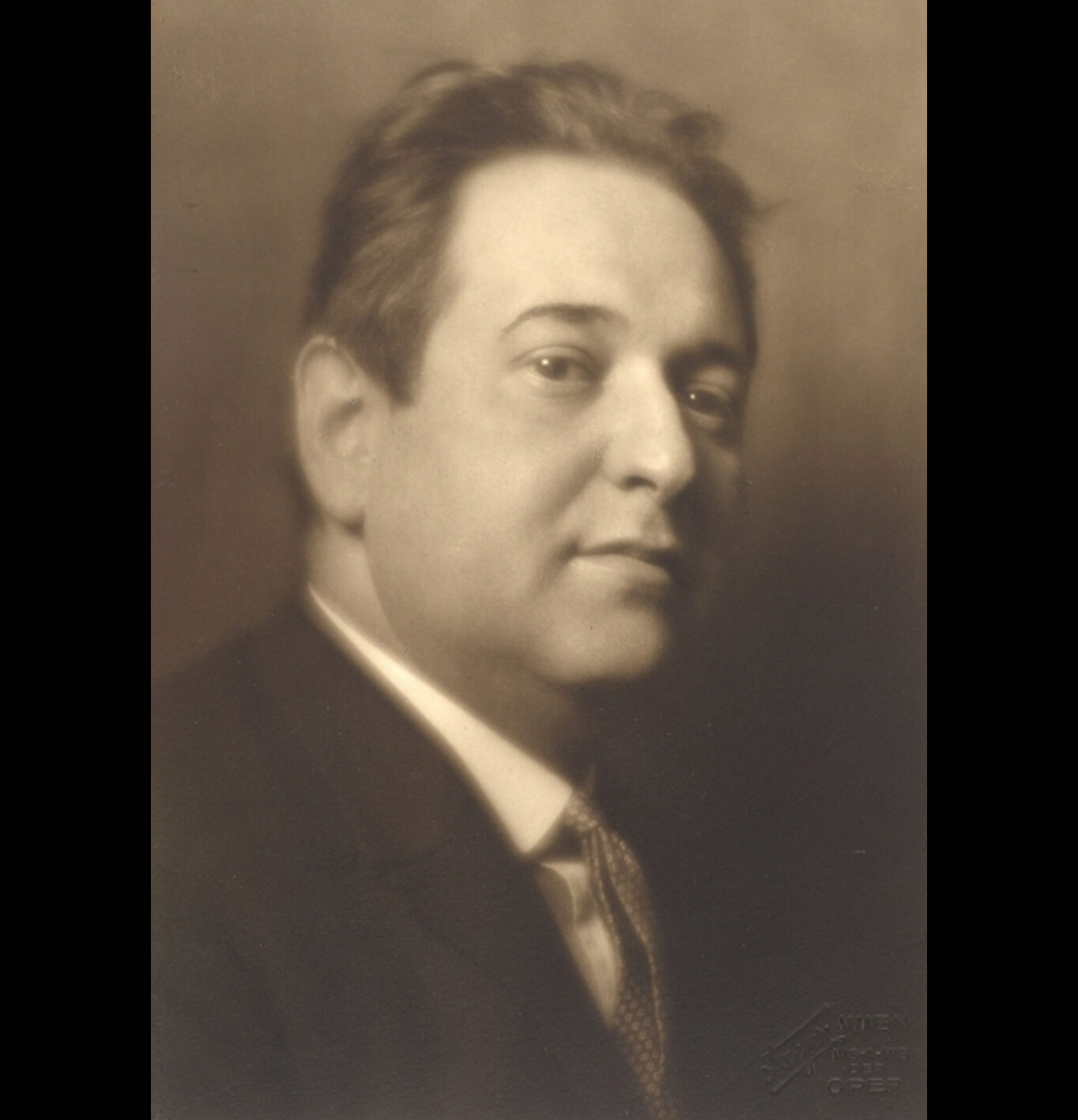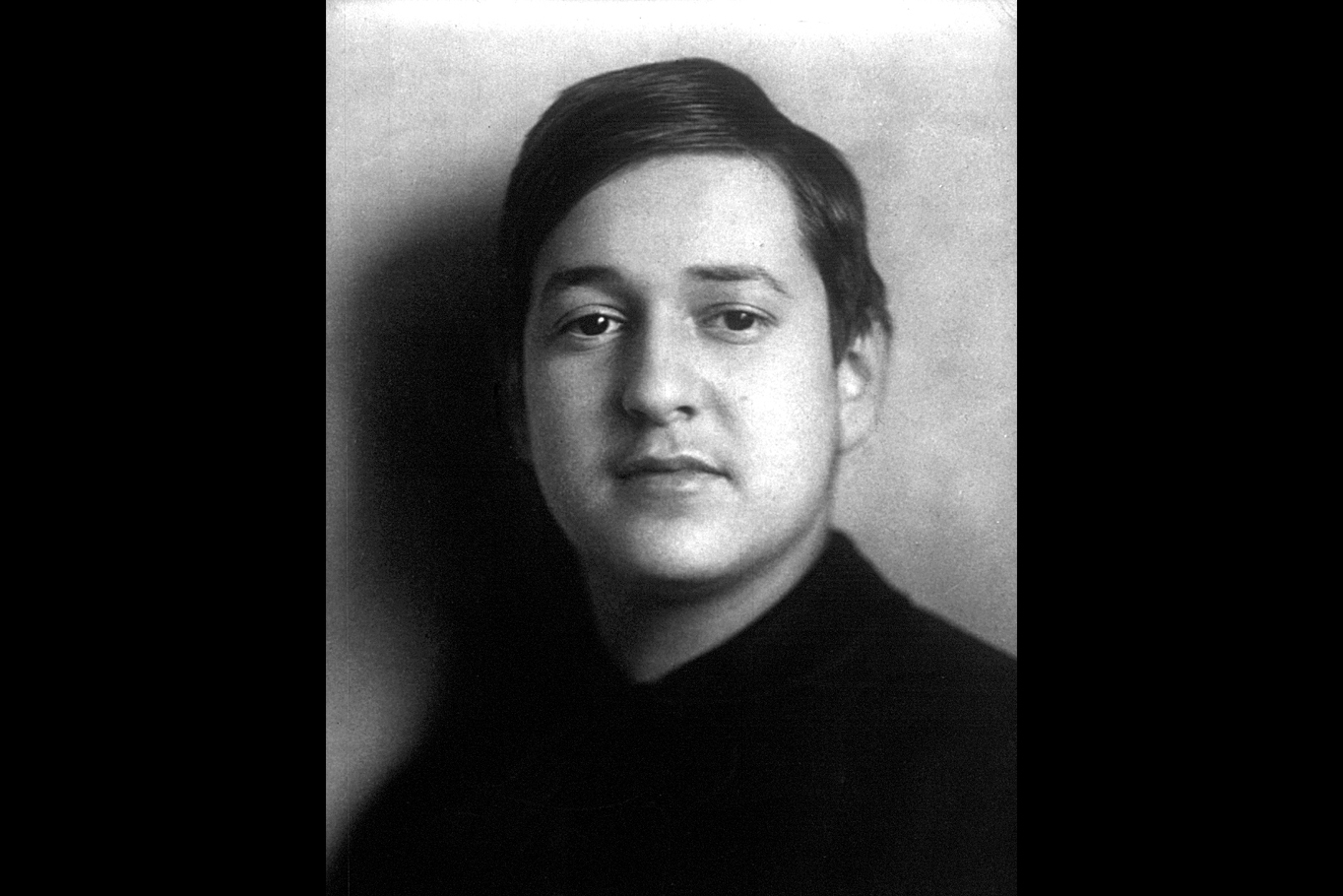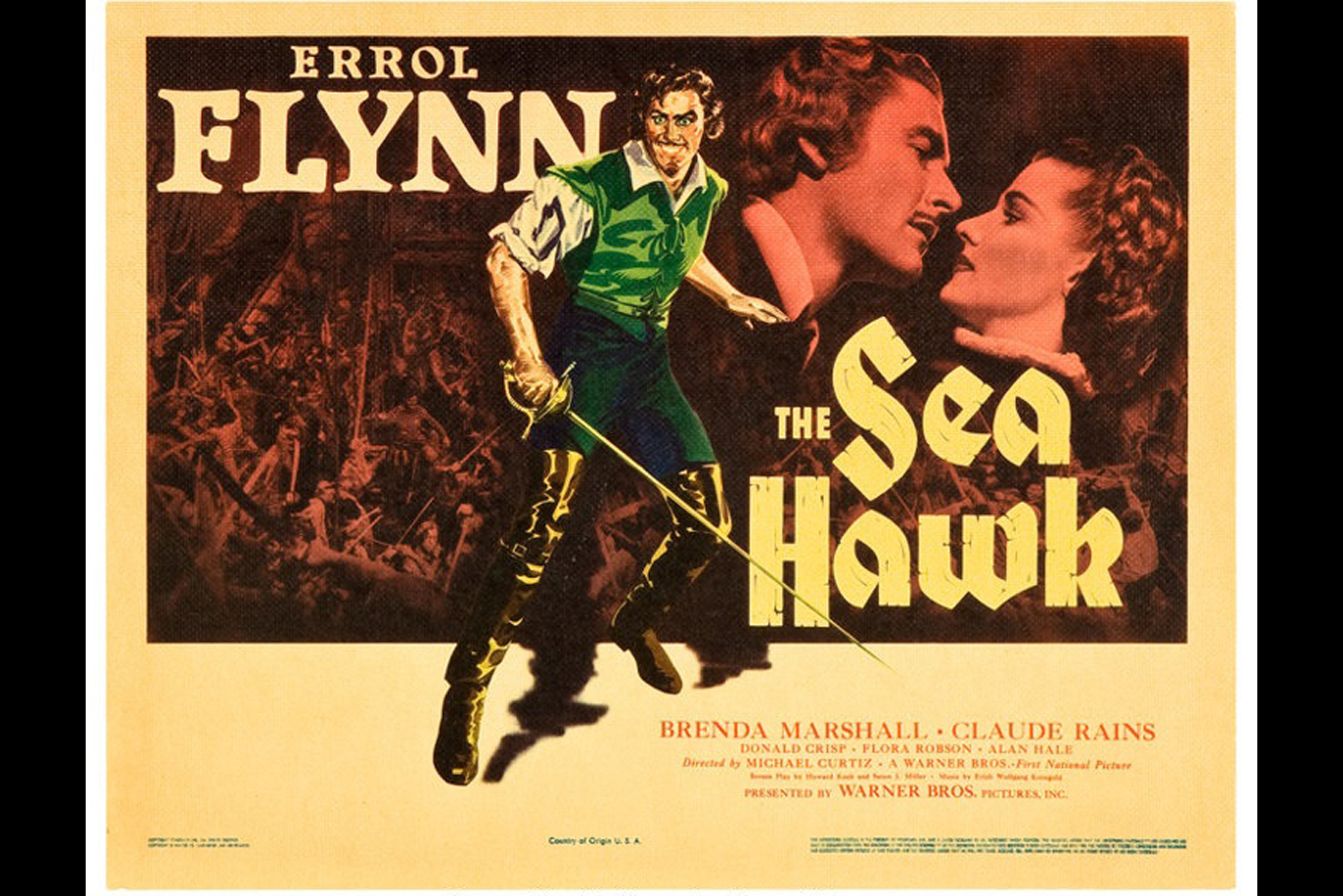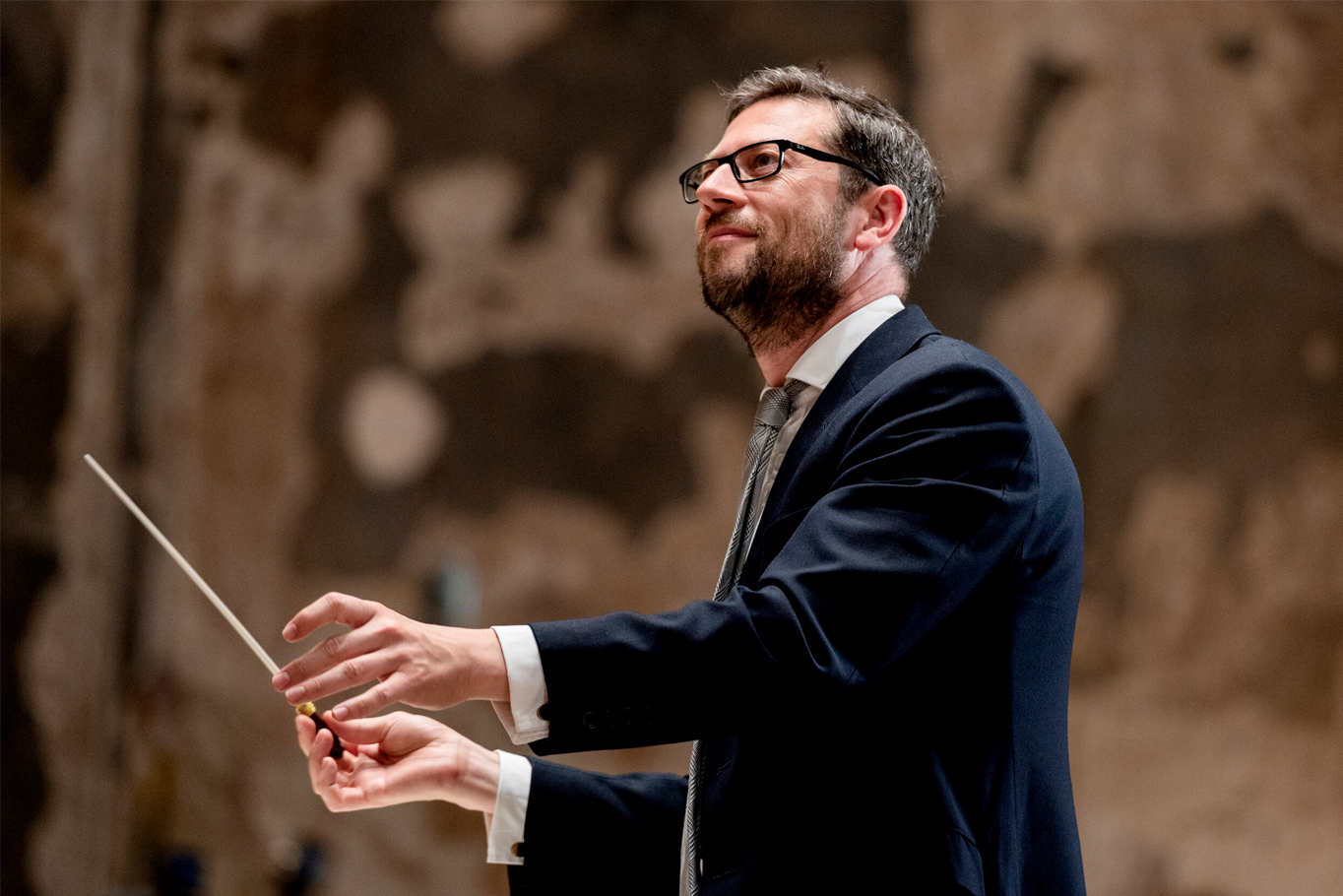
More gold than corn: the extraordinary influence of Erich Wolfgang Korngold
08 May, 2023
Thirty years ago, nobody knew who Korngold was. Now, thanks in large part to the efforts of English conductor John Wilson, his music can be heard on albums and in concert halls around the world – including the Sydney Opera House this May.
By Alastair McKean
The new violin concerto was rapturously lyrical, heartfelt, sentimental but never veering into schmaltz. No less than the great Jascha Heifitz championed it.
But in 1947, the self-appointed gatekeepers of musical taste were very sniffy about anything that smacked of romanticism, and what’s more – the horror! – its composer had dirtied himself composing film music, of all things. So the critic for theNew York Post casually dispatched it with a brutal review, to which the subeditor gleefully appended the headline: “More Corn Than Gold”. Doubtless there have been more vicious putdowns: this one, though, helped sink Erich Wolfgang Korngold’s reputation for two generations.
“He died a broken man”, says John Wilson, bleakly. In the early 1990s, when Wilson was a student, “nobody knew who he was.” And yet 70 years earlier Korngold’s popularity was such that his third opera, Die tote Stadt (The Dead City) was obliged to be given simultaneous premières in Hamburg and Cologne. Within a couple of years, it too had reached New York. He was 23 years old.

Korngold’s stint in film music, which came about almost by accident, saved his life. In 1938 a telegram arrived at his home in Vienna, asking if he could be in Hollywood in the next fortnight for a new film. It concluded: STRONGLY ADVISE ACCEPTANCE. He and his family got out just ahead of the Anschluss and ended up in Los Angeles, in that remarkable community of Jewish artists “exiled in Paradise.” He refused to write concert music during the war, which he spent entirely in the service of Warner Bros.
It was a traumatic change, as Wilson puts it, “from being … an opera composer of stature to not having that outlet anymore”. But Korngold was a naturally optimistic person. “He made the best of it,” Wilson says: “he loved the orchestra, he loved the musicians, he loved his colleagues.” And he poured out his creativity, and his impeccable dramatic instinct, into his film scores: “If you look at those scores of Korngold’s for the movies – and there aren’t many, only 21 or 22 – they’re incredibly intricate, seriously thought-out. “Operas without singing,” I believe he called them.”
As an example, Korngold’s fabulous score for the Errol Flynn pirates-and-treasure epic The Sea Hawk has at least a dozen major motifs attached to various characters, à la Wagner. And the music is more or less continuous through the film; when it was recorded by the BBC Philharmonic in 2007 (finally allowing audiences to hear great swathes of extremely elaborate music that had hitherto been obliterated by the din of sea battles), cuts had to be made to fit it on a very generously filled CD. But although these Golden Age swashbucklers are Korngold’s most famous movies, he scored a surprisingly wide range of films, including a 1941 number called Kings Row, widely agreed to be the finest work of a second-string actor called Ronald Reagan.

“He was one of the pioneer composers in Hollywood,” says Wilson. “From the from the day Korngold arrived in Los Angeles … standards started to go up – standards of playing, of musical appreciation, of thought.” He turns to another musician with one foot in Hollywood and one in the concert hall. “[André] Previn pointed out that it was fashionable for a while to say that Korngold’s music sounds like Hollywood. But of course, the exact opposite was true: Hollywood sounds like Korngold. Hollywood, until Korngold arrived, didn’t have a sound.” Korngold’s most celebrated disciple is, of course, John Williams, and it’s a great irony that although Korngold is more obscure than he deserves to be, his Hollywood music arguably makes him one of the most influential composers of the century.
When the war ended, Wilson says, Korngold thought that “he would go back to Europe and everything would be as he left it. Of course, the world had changed, and people weren’t interested in the kind of thing he was doing.” What was this? “Well, I would say his style never changed during the whole of his career. His philosophy as a composer, whether it be writing for the movies or a concert hall, was his belief in “the inspired idea”. His film scores were richly inspired pieces full of great tunes. And the same is true of the Symphony.”
Korngold composed the Symphony in F sharp between 1947 and 1952. And Wilson points out that, like the film scores, “the symphony contains very coherent symphonic arguments. It’s structured like a symphony. And he also was keen to press the point that tonality, in his eyes, still had an awful lot of mileage left in it.
“You could say it’s the last truly great late Austro-German Romantic symphony. Finished in 1952, in the mould of the great Austro-German symphonies. And if you haven’t heard it before, I’m envious of you because I’d like to hear again for the first time, and to watch that piece unfold.”
The sniffy gatekeepers, though, gave it the same treatment as the Violin Concerto. “It had such a troubled beginning,” says Wilson. “It was a terrible first performance. It died a death. It wasn’t revived until 1972, and even then it was hardly played – I don’t even think the parts got properly printed until the late 90s.
“The emotional heart of the piece is the third movement,” Wilson continues. “Korngold insisted [it] was non-autobiographical. But there’s such heartache and there’s such anger in that movement, I just don’t believe him. This is a man who had to uproot his entire life and flee to Hollywood, for not only his safety but the safety of his family. And he supported many other families when he was in Hollywood. And he died, as I said, a broken man. I think there’s a lot of anger in the Symphony.”

Wilson gets quite emotional talking about the Symphony. “I love that piece,” he says, very deliberately and intensely. He adds: “It’s a tough nut to crack … it can be quite elusive musically, it’s difficult technically”. True. It’s ferociously tricky to play, and because performances are so rare, very few musicians have seen it before, which doesn’t help. But Wilson says again, emphatically: “I’ve always loved it.” In 2019, Chandos Records presented Wilson with the opportunity to relaunch the Sinfonia of London. (This storied orchestra, defunct since the early 2000s, was perhaps most famous in its previous incarnations for its disc of English string music conducted by Barbirolli, and for its appearance on the soundtrack of Alfred Hitchcock’s Vertigo.) Finally, Wilson could achieve his “obsession” and record the Korngold Symphony in F sharp.
Perusing the Sinfonia’s personnel list brings a familiar name: the concertmaster is none other than the Sydney Symphony’s own Andrew Haveron. “Andrew is the key figure,” says Wilson. “Because going back to when we were students at college, Andrew had an affinity with all of the great violinists of the first half of the 20th century. And once he introduced me to that whole world … safe to say I have never really ever left it behind. For me, it’s kind of the zenith of achievement in string playing.” Hence Wilson’s critically acclaimed recordings with the Sinfonia include a glorious account of the Korngold Violin Concerto with, as the soloist – Andrew Haveron.
Nowadays, Wilson says, “the Violin Concerto is a repertoire piece, a standard repertoire piece … there are now many recordings of the Symphony. And there’s loads more [of Korngold’s] music out there, much of which we want to record”. If the Concerto has outgrown that awful headline, though, has Korngold himself? “You could, I think quite fairly, put an argument for Korngold being – certainly up to a few years ago – the most unjustly neglected composer of all. Because there was a time 30 years ago none of his music was being played.” But Wilson is confident that the ten-year-old composer whom Mahler hailed as a genius is finally coming out of the shadows. “I think the good stuff will always emerge, no matter how long it takes.”
